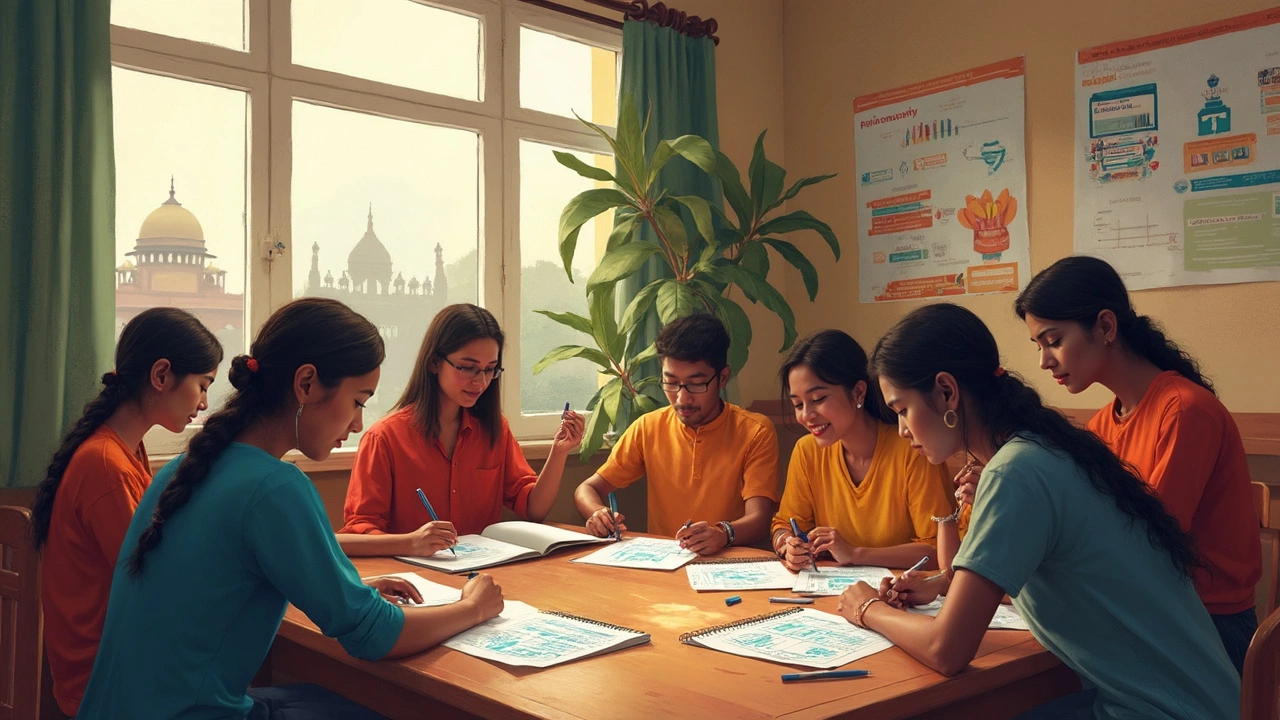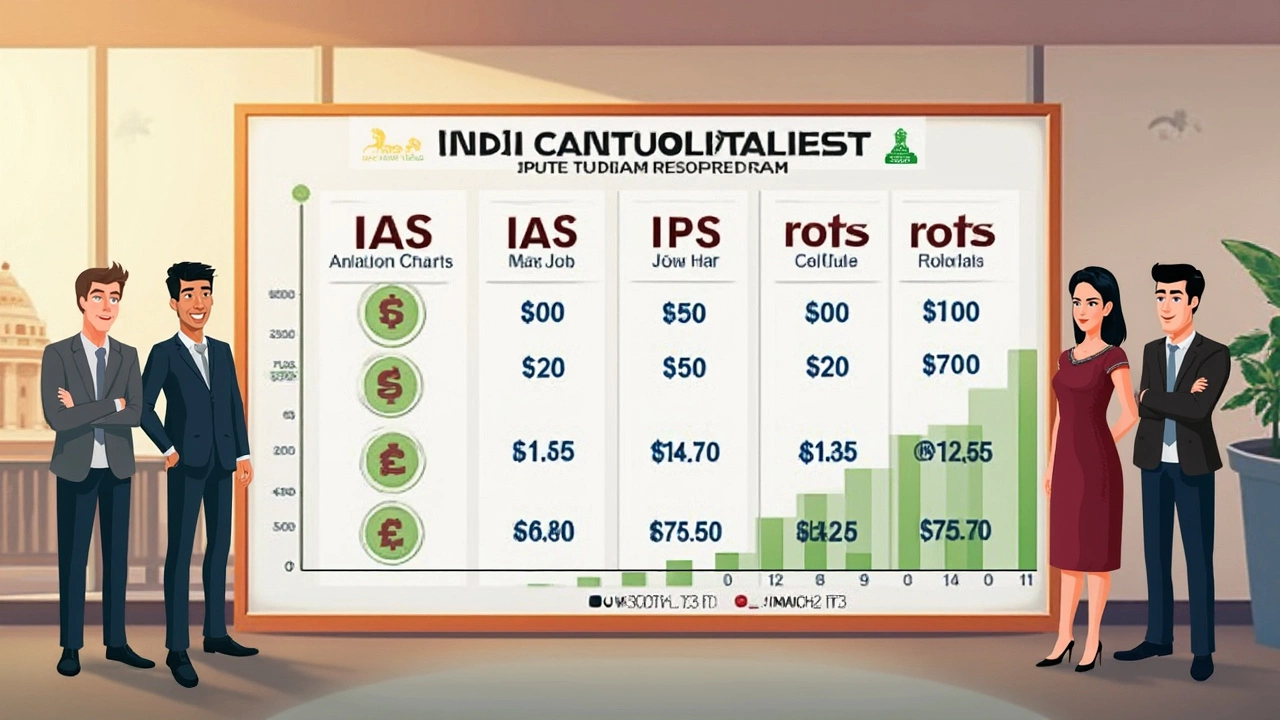Ever wondered which government job actually brings home the biggest paycheck? It’s not always what people assume. There’s a whole world beyond the common civil service titles, and the top spot for salary sometimes surprises even the most dedicated exam-takers.
Different services offer different pay scales, perks, and ways to boost your earnings—especially once you factor in things like housing, special allowances, and status-based bonuses. But it’s not just about the number. Other goodies come with these roles, from almost-free housing to club memberships and security, which add serious value to your real-life monthly income.
Let’s get into the specifics—what’s the real number on that monthly slip and who gets it? If you’re thinking about prepping for government jobs, or you just want to know what’s really at stake, this guide will help you see which roles are truly worth the struggle.
- Which Government Job Pays the Most?
- Inside Salaries: Key Services Compared
- Extra Perks and Real Benefits
- Tips: How to Crack Top-Paying Roles
Which Government Job Pays the Most?
It’s no secret that people aim for government jobs for job security, respect, and a good paycheck. Now, if you’re chasing the highest salary government job, it’s all about knowing which services top the charts. The Indian Administrative Service (IAS), Indian Police Service (IPS), and Indian Foreign Service (IFS) are the big names most folks know. But did you know some lesser-talked-about central government roles can outdo them for take-home pay?
For regular entry through UPSC exams, the IAS and IFS hold the top spot. After the 7th Pay Commission, a freshly recruited IAS officer earns around ₹56,100 as basic pay per month, plus DA, HRA, and other allowances. Add these perks up, and the monthly gross can cross ₹1 lakh in bigger cities. Heads of top institutions—think RBI Governor or heads of big PSUs—can earn even more, sometimes up to ₹2.5 lakh per month, not counting bonuses.
Then there are technical roles, like Scientists in ISRO or DRDO, where salaries can be higher due to special pay bands. Even some PSU jobs (like top-level managers in ONGC or Coal India) kick the pay scale into another league, with annual CTC (Cost to Company) reaching ₹30-40 lakhs for board-level bosses.
- IAS/IFS Officer: ₹56,100 basic plus allowances, power-packed perks, official housing.
- RBI Grade B Officer: ₹55,200 starting basic, total monthly salary can be around ₹1.2 lakh or above.
- PSU Chairpersons (like ONGC, BHEL): ₹2 lakh+ monthly, with extra for housing, travel, and stock options in some cases.
- ISRO/DRDO Senior Scientists: Salaries often higher than regular civil services at similar experience levels.
The real money, though, comes for those who reach top-level posts after years of service. As a cabinet secretary—the highest post in civil service—you could get paid ₹2.5 lakh as basic salary per month (plus many perks).
Of course, these jobs come with tough competition, serious responsibility, and a lot of exams. But if you’re focused on earning the most, aim for central government services like IAS, top PSU, or technical posts at national level. That’s where the salaries and the add-ons make the struggle worthwhile.
Inside Salaries: Key Services Compared
Let’s get real about the paychecks for big government jobs. Most people expect the IAS (Indian Administrative Service) or IPS (Indian Police Service) to have the fattest pay, but here’s how it actually breaks down as of 2024.
- IAS officers (the classic choice for UPSC toppers) start with a base pay of about ₹56,100 per month under Level 10 of the 7th Pay Commission. But with all the allowances like Dearness Allowance (DA), House Rent Allowance (HRA), and Transport Allowance added, the take-home crosses ₹1 lakh, especially in metro cities.
- IPS officers are in the same pay band. Their pay, with allowances, is nearly identical to IAS at the entry level and grows along similar lines as they move up.
- Indian Foreign Service (IFS) officers see big boosts—if posted abroad, the "hardship allowance" and foreign post compensation can make their take-home double or even triple, depending on the country.
- Jobs in Public Sector Undertakings (PSUs) like ONGC, IOCL, and BHEL have a different model. Graduate Engineer Trainees, for example, can get CTCs up to ₹20-25 lakhs per year, which edges out some central services on paper. But keep in mind, PSU perks can depend a lot on seniority and role.
- Think the President of India has the highest salary? Yes and no. The official monthly pay is ₹5 lakh. But jobs like RBI Governor and Chief Election Commissioner can offer both higher pay and more perks, especially when you stack in official benefits.
So, when you ask which is the top highest salary government job, it depends on the stage of your career and the role itself. Top-level IAS and IPS officers eventually get massive boosts, with Chief Secretaries and DGPs earning over ₹2.5 lakh per month, not counting extra perks. But if instant cash is your focus, some PSU management roles and central constitutional posts hit that sweet spot faster.

Extra Perks and Real Benefits
So, what makes government jobs more tempting than corporate roles, besides a steady highest salary government job reputation? It’s all in the little (and not-so-little) extras. Let’s talk about what you really get when you land one of these top government positions.
Most high-level services—think IAS, IPS, IFS, or top Central Government posts—come with chunky allowances. For example, the IAS officer package doesn’t just include a salary. You often get government bungalows at prime locations, an official car (sometimes with a driver), medical insurance for the whole family, and subsidised electricity and water bills. That’s serious savings every single month.
And then there's the preferred treatment. Officers holding senior posts enjoy club memberships, leave travel concessions (LTC), and free or discounted travel on state-run carriers. Post-retirement, you’ll see secure pensions, which is a massive relief—private jobs can rarely match this safety net. In fact, as quoted by a former Chief Secretary in The Hindu,
"For many, the benefits and perks—like official accommodation and pension—make these jobs more valuable than pure take-home salaries."
Here’s a basic breakdown of major perks for some top government jobs:
| Service | Housing | Transport | Medical Coverage | Pension |
|---|---|---|---|---|
| IAS | Free house/bungalow | Official car + driver | Full family cover | Yes |
| IPS | Spacious government house | Official car, security vehicle | Extensive cover | Yes |
| IFS | Luxury accommodation abroad | Staff car | International cover | Yes |
| Central Govt. Group A | Allotted housing | Transport Allowance | Comprehensive cover | Yes |
If you’re eyeing these jobs for the extras, pay close attention to what’s available at each level. The difference between a middle manager and the top boss can be as much about those hidden perks as it is about the number on your payslip. More importantly, those benefits mean real savings for your family and less stress when unexpected costs pop up.
A smart tip: if insurance, pension, and education benefits matter to you, focus on services that don’t just offer the highest salary but throw in the widest safety net. Sometimes the perks are worth more than the starting wage.
Tips: How to Crack Top-Paying Roles
Scoring a highest salary government job is a big deal, but the path is tough. The competition for premium posts like IAS, IPS, and Group A services is fierce—you’re looking at millions of applicants for a handful of seats every year. Don’t let that intimidate you, though. With the right steps and game plan, it’s doable.
- Know What You’re Aiming For: Read the official notification for your target job. Every job, whether IAS or RBI Grade B, has a different exam pattern, eligibility, and age limit.
- Plan Your Prep Smartly: For UPSC Civil Services, you need a clear plan for Prelims, Mains, and the Interview. Each stage is a knockout, so treat them separately.
- Master the Syllabus: Stick to the syllabus and don’t wander off. For UPSC, even a single topic can shape your result. Use the latest government-recommended books and NCERTs for basics.
- Mock Tests are Non-negotiable: Success in government exams comes down to practice. Take weekly mocks from reliable sources and analyze your mistakes. This boosts both speed and accuracy.
- Pick Optional Subjects Wisely: Your optional paper in exams like UPSC can decide your fate. Choose a subject you understand well—not just what toppers pick.
- Don’t Skip Current Affairs: Especially for top jobs, recent issues make or break your score. Read a good newspaper daily and use monthly magazines for revision.
- Stay Consistent: Prepping is more about daily effort than weekend marathons. Even if it’s just 2-3 hours a day, keep at it, and don’t break your streak.
Check out how tough the competition is for top salary government jobs:
| Job/Post | Applicants (Approx.) | Seats (2024) |
|---|---|---|
| UPSC Civil Services | Over 1 million | 1056 |
| RBI Grade B Officer | Around 2 lakh | 291 |
| IFoS (Indian Forest Services) | 60,000+ | 110 |
Here’s one more thing—don’t get lost in fancy coaching promises. Plenty of toppers prep at home using standard books, previous year papers, free online classes, and good old self-discipline. Surround yourself with people who motivate you. Even Leah reminds me how taking small steps each day beats cramming at the last minute.
If you want to boost your chances, stick to tried-and-tested materials, give yourself enough time, and never hesitate to ask for help or clarity when you’re stuck. Smart, regular effort trumps last-minute rush—every single time.
